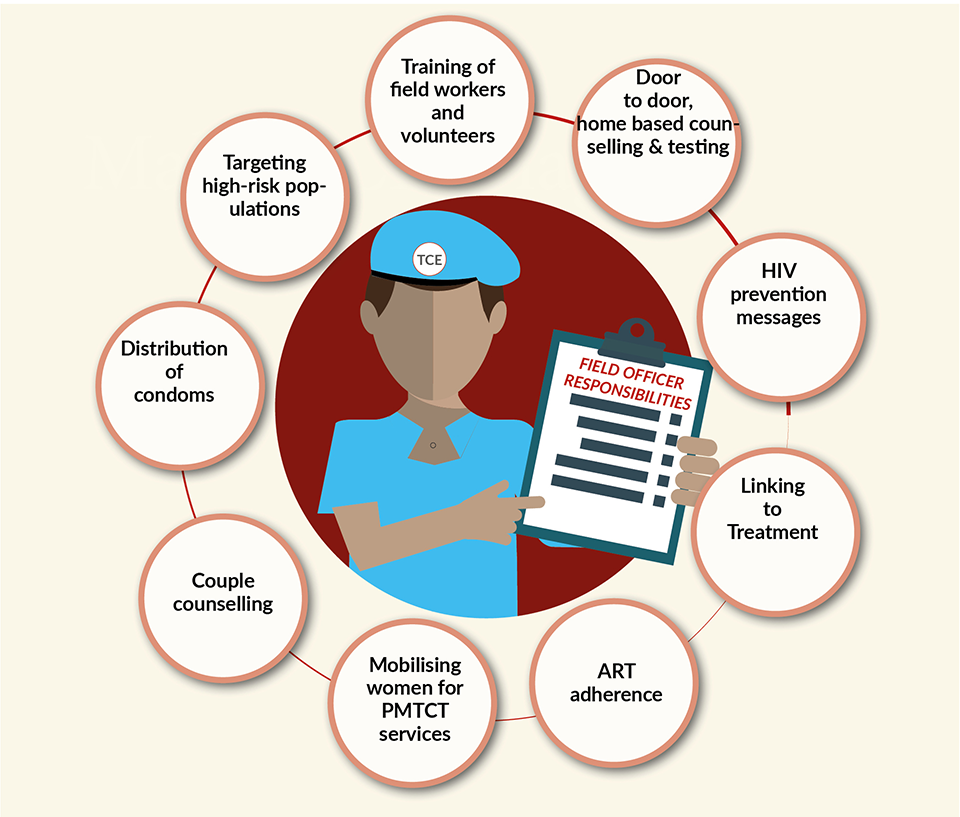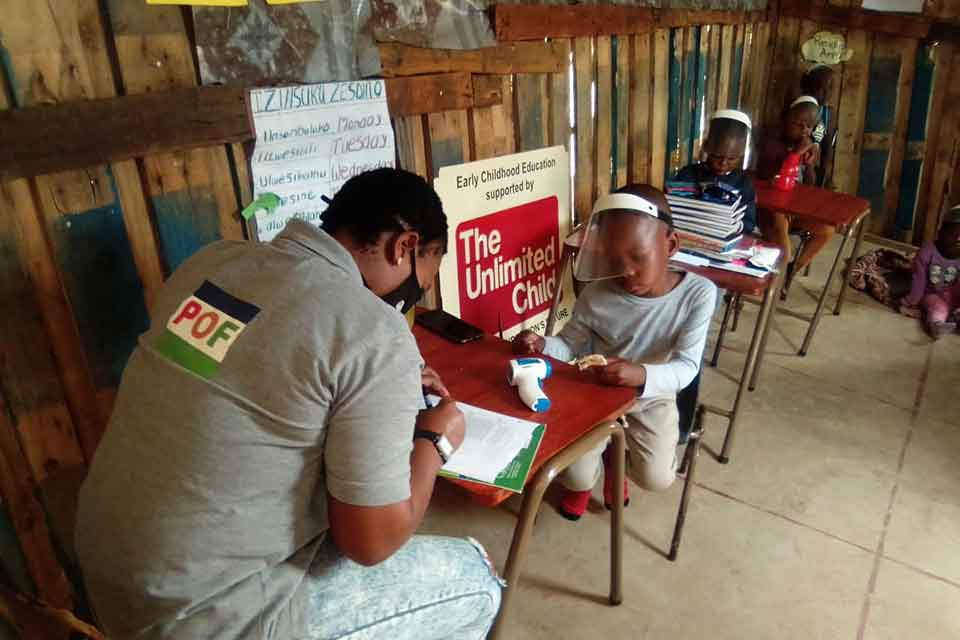Total Control of the Epidemic - TCE
Total Control of the Epidemic, widely known as TCE, is a systematic community mobilisation drive to secure people take control of HIV & AIDS and TB. Today, TCE works with the rest of South Africa to make sure all people know their HIV status, receive treatment and adhere to the treatment. TCE has been active in South Africa since year 2002 and reached more than 5 million South Africans directly.

Still today, people need the right information on these diseases, both how to protect themselves and to seek medical support. Stigma still exists, and a continuous effort to strengthening communities to respond is needed. Health services are now much more widely available, but not always reaching the most vulnerable.

TCE uses a community health worker approach, training local people as Field Officers, who, supported by professional nurses, provide the counselling and testing close to where people stay and work. They offer TB and STI screening and screening for non-communicable diseases. People who test HIV positive, or who have symptoms of TB, STI’s and other diseases are linked to care and treatment and supported to adhere live healthily.





